Earth
-
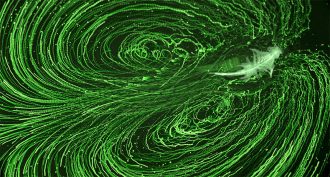 Oceans
OceansSmall swimmers may play huge role in churning the seas
Hoards of migrating shrimp and krill can cause large-scale water movements in the ocean, a new study suggests.
-
 Environment
EnvironmentRestaurant diners may ingest extra pollutants
People who dine out have higher levels of certain potentially harmful pollutants in their bodies than do people who eat home-cooked meals, new data show.
-
 Environment
EnvironmentScientists Say: Runoff
Water that flows through soil and into rivers, lakes and oceans becomes runoff. That runoff can carry part of the land — including its pollution — to the sea.
-
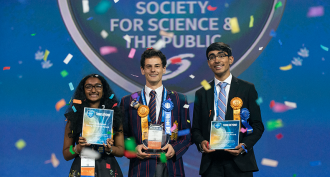 Earth
EarthRobots and ‘green energy’ win the day at Intel ISEF
The top three awards — each worth $50,000 to $75,000 — went for a window-washing robot, low-cost big batteries and ‘green’ capacitors
By Sid Perkins -
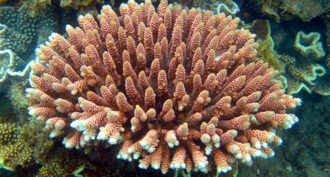 Oceans
OceansOcean heat waves are on the rise — and killing coral
Ocean heat waves are becoming hotter and more frequent. And one can be blamed for the 2016 coral deaths on the Great Barrier Reef.
By Dan Garisto and Carolyn Gramling -
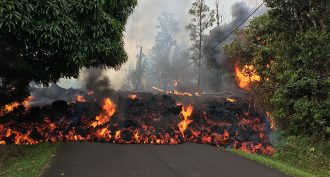 Earth
EarthHow long will Kilauea’s new eruption last?
A government volcano expert answers burning questions about the ongoing Kilauea eruption.
-
 Chemistry
ChemistryBanana plant extract can slow how fast ice cream melts
Food scientists now show that adding these tiny plant particles to ice cream may delay the rate at which this treat melts into a soupy mess.
-
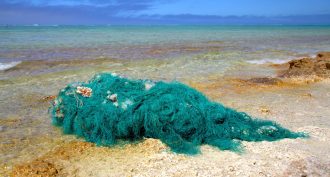 Environment
EnvironmentPacific garbage patch may be 16 times bigger than thought
The giant ‘garbage patch’ that floats between Hawaii and California weighs at least 79,000 tons, a new estimate suggests.
-
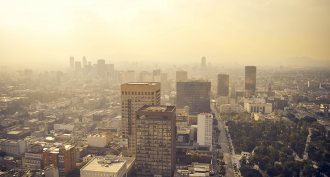 Environment
EnvironmentDirty air can harm your brain and stress the body
New research shows that polluted air can mess with the bodies — including the brains — of even healthy kids and teens.
-
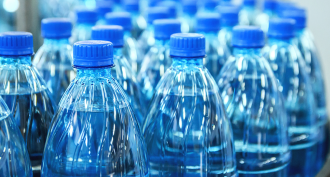 Environment
EnvironmentPlastic taints most bottled water, study finds
Tiny bits of plastic contaminated nearly every tested sample of bottled water from nine countries. Whether ingesting the plastic might pose some risk remains unknown.
-
 Animals
AnimalsCan anything stop the big pig invasion?
Millions of wild pigs roam North America, causing billions of dollars in damage every year. Scientists are looking for new ways to stop the swine.
-
 Environment
EnvironmentLight at night lengthens how long birds can spread West Nile virus
Light at night prolongs the time it takes these birds to knock out a West Nile infection. Mosquitoes that bite them during this time can pick up and spread their virus to others — even people.
By Susan Milius